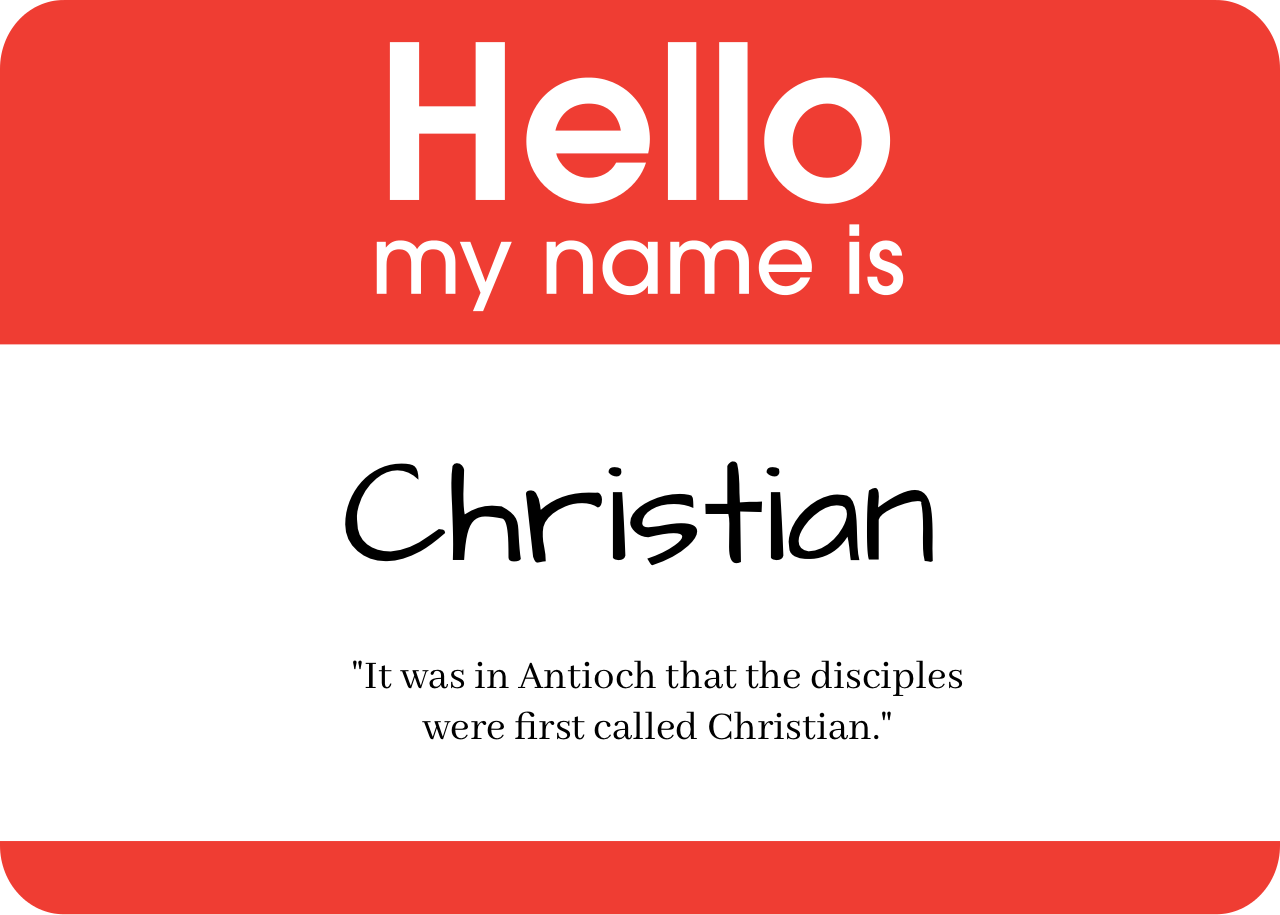Can you remember the first time you were called a Christian?
It was at Antioch that the disciples of Jesus were first called Christians. This, of course, is after the death and resurrection of Jesus, after the disciples, including Barnabas, and apparently Paul (known to them as Saul, the name he had before his conversion). These dedicated men created a community in Antioch and taught them the Gospel and started a church there. The people around them knew them for teaching about the Christ – Jesus – and it was there that they were first called Christians.
We probably don’t think much about the term “Christian.” It’s so much a part of our vocabulary, that we know Christians are those of us who believe in Christ and follow his teachings. Sometimes people wonder whether Catholics are Christians, and the response is, yes, of course. Our Church was founded by Christ himself, and we dedicate ourselves to living the Gospel he taught us, to living our own lives as disciples, as followers, as people devoted to him.
If I were to ask you, “Who is Jesus?” you might tell me that he is the Son of God, the second Person of the Blessed Trinity, the son of Mary and Joseph, God made man, the One who went about doing good and calling people to repentance, the One who shows us the way to the Father. These, and many other facts about Jesus, are absolutely right, and we believe them completely. But a fuller, more important answer requires us to go more deeply and to answer who is Jesus for us? Do we have a relationship with Jesus, or is he just a concept we have learned?
If all Jesus is is a concept, then, honestly, who cares? If all Jesus is is a concept, why did so many of those early disciples die for him? If all Jesus is is a concept, then how did this Church survive for over two thousand years? Concepts are interesting, maybe, but hardly worth living for and dying for. A vibrant relationship with a God who loves us enough to be personally present to us, that’s worth living and dying for. At the end of the day, only that vibrant relationship with Jesus will cause people to say, “She’s a Christian” or “He’s a Christian.”
Ever since Sunday, and including tonight, the Gospel reading at Mass has been reflecting on Jesus as the Good Shepherd. Our Good Shepherd promises us eternal life, a life so much better than what we now experience, a life of forever grace, where all of our woundedness is bound up and our sins erased and our death redeemed. All we have to do to get there is to listen to his voice, live his Gospel, and be faithful to our relationship with him. If we do that, no one can take us out of his hand, no one can separate us from his love.
In these days of pandemic, when we are sheltered in place and socially distant from each other, Jesus offers us a relationship that transcends all that. He offers us a relationship where virus, disease, sin and death don’t have ultimate power over us. He offers us a relationship that continues to write our story and draw us closer until we are one with him. In these days of pandemic, I firmly believe that God is doing something among us: calling us to look at what’s ultimately important and calling us back to oneness in him. That, really, can be the gift to us in these days. And who doesn’t need a real gift in these days?!
I honestly hope we never go back to normal – at least not the normal we’ve become used to. Because that normal had us forgetting about Jesus and distancing ourselves from one another – you know, in different ways than we have now. That normal had us distancing ourselves from our families in favor of being part of every activity imaginable. That normal had us eating in the SUV on the way to the next thing rather than sitting down and getting to know each other. That normal found other things so much more important than our relationships with each other and with our God. And, friends, that normal isn’t worthy of us. We deserve so much better, and the great thing is, God wants us to have it.
So when things start getting back to normal – whenever that may be – let’s not forget the really important things we have learned and experienced and loved in these days. Let’s not forget the really beautiful things that have happened among us. Let’s not forget our renewed relationships with each other, and the relationship we have with God. Let’s not forget that we are Christians.
Because Christ is risen. He is risen indeed! Alleluia!


You must be logged in to post a comment.